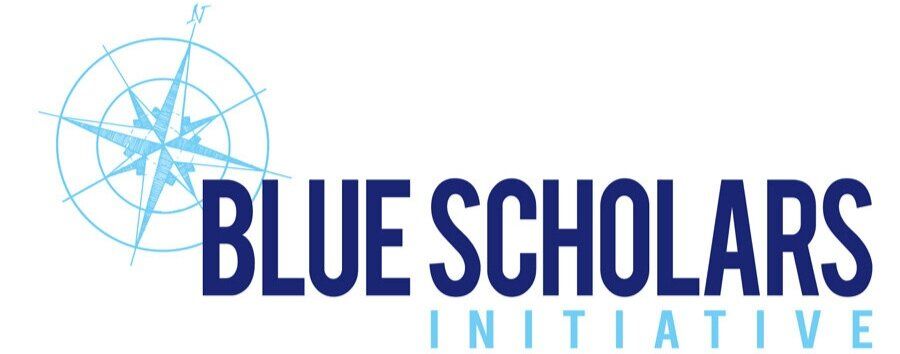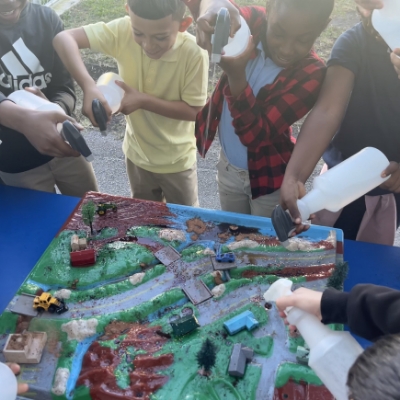Classroom Visit at Arcola Lake Elementary
Miami, Florida
February 3, 2023
Overview
On Friday, February 3, 2023, The International SeaKeepers Society assisted Blue Scholars Initiative in facilitating in-classroom marine science lessons to 64 fourth-grade students at Arcola Lake Elementary School in Miami. Students received two lessons, the first discussing marine pollution, and the second exploring the dynamics of coastal watersheds.
Blue Scholars Initiative has been working with these students at Arcola Lake as a part of a 4-part, hands-on curriculum that aims to engage students in marine biology, marine ecology, and watershed concepts while providing a better understanding of, and connection to, the marine ecosystem and the impact of human stresses. Sarah, our Program Support Specialist, joined Meredith Bass from Blue Scholars to facilitate part 3 of the series where students participated in activities that simulate how humans interact with the complex dynamics of our marine systems.
The group had the opportunity to learn about the hydrology of watersheds, as well as the anthropogenic threats that watersheds face, with a hands-on activity executed with a topographic model of “Miami.” Students were led in discussion surrounding common sources of pollution found in areas similar to where they live, like power plants, cars, farms, and storm drains. Pollutants like plastic litter, air and oil pollution, and nutrient pollutants like fertilizers, were represented on the model with sprinkles, Hi-C, cocoa powder, and soy sauce, and demonstrated how dirty the areas we live can get. After pollution sources were discussed, students sprayed the model with water to simulate rain, and students were able to see how pollution is carried by rain and flood water, canals, and rivers into the Biscayne Bay. Students also learned about the various effects each of the pollutants can have, for instance fertilizer, which can build up and lead to algal blooms and fish kills, which have been increasing in frequency and intensity in places like South Florida.
Outing Goal
Students learned about marine pollution and the different items that are often found in coastal and even deep ocean ecosystems. By identifying different types of marine pollution, students were able to connect their actions to impacts felt in the marine environment. This way, they were also able to identify how environmental balance can be disturbed by different types of pollution, illustrating how our actions as humans can have a significant impact on the ecology of our oceans, even if we can’t see it directly.
Partner Sites
Partner Logo



You must be logged in to post a comment.